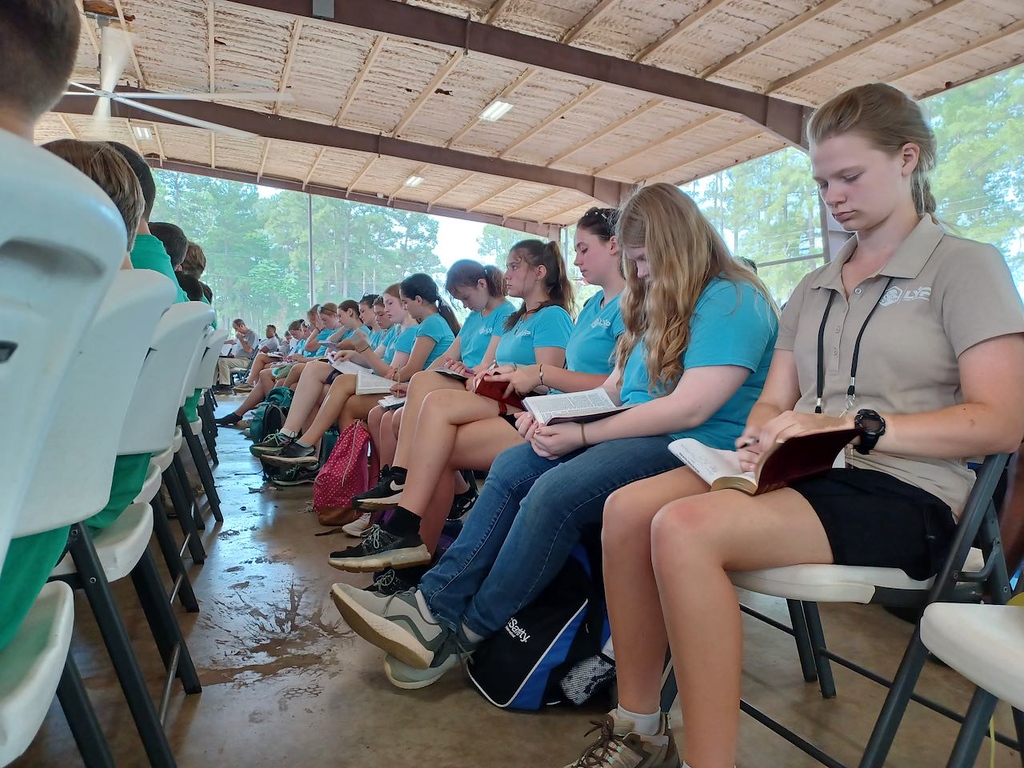Digging Deeper: The Residue of Men
Author: Kenneth Frank | Faculty, Living Education
Estimated Reading Time: 7 min., 48 sec.
Did you know that it was God’s intention from the beginning to include non-Israelites, called Gentiles or the nations, in His plan of salvation?
Though God chose Israel to become a model nation, it always was His will that other peoples would be offered the same salvation. Israel was supposed to become a Godly example that other nations would wish to emulate (Deuteronomy 4:6-8). However, by the time of Jesus, many of the Jewish people (especially the ruling elites) had come to look down upon Gentiles, even referring to them as dogs. Jesus’ preaching to Gentiles during His ministry no doubt raised some eyebrows! This “Digging Deeper” highlights the ministry of the early church to not only preach to the Jew first but also to Gentiles. This is made plain by the ministries of Jesus, Peter, Barnabas, Paul, and others in the Gospels and the Book of Acts.
Acts 15 chronicles the first ministerial conference called to settle a question about whether Gentiles needed first to become Jews before they could become Christians. The hot button issue of the day was the matter of circumcision. For centuries, male converts to the Abrahamic faith needed to be circumcised to become full proselytes. Some former Pharisees in the early church insisted such Gentile converts needed bodily circumcision to enter the Christian faith. Nonetheless, chapter after chapter in the early part of Acts revealed that God gave His Holy Spirit to Gentiles without circumcision, illustrating that now it was circumcision of the heart and not of the flesh that was required (Romans 2:28-29).
After Peter, Barnabas, and Paul testified how God provided His spirit to the Gentiles apart from bodily circumcision, the resident pastor of the Jerusalem church, James, announced the church’s decision that it would not insist upon circumcision of Gentiles. For authority, he turned to the prophets of the Hebrew Bible as evidence that this was God’s will all along (Acts 15:15). Acts 15:17 KJV is especially pertinent: “That the residue of men might seek after the Lord, and all the Gentiles, upon whom my name is called, saith the Lord, who doeth all these things.” Matthew Henry’s Commentary on the Whole Bible explains James’ pronouncement: “He confirms this with a quotation out of the Old Testament: he could not prove the calling of the Gentiles by a vision, as Peter could, nor by miracles wrought by his hand, as Paul and Barnabas could, but he would prove that it was foretold in the Old Testament, and therefore it must be fulfilled, Acts 15:15” (e-Sword 12.1).
Thayer’s Greek Definitions reports that the word “residue” is a translation of the Greek New Testament word kataloipos that appears only here and means that which is “left remaining” (e-Sword 12.1). It refers to the faithful remnant of humankind who are not of Israelite descent. The Webster’s 1828 Dictionary definition declares that “residue” comes to English from the Latin neuter residuus and means, “That which remains after a part is taken, separated, removed or designated” (Ibid.). After God had separated Israel, the rest of humankind fit this definition. Thayer then reports that the word “men” in Acts 15:17 is a translation of the word anthropos which means “a human being, whether male or female” (Ibid.).
James only quoted one prophet concerning the welcoming of non-Israelites into the faith but there were several others. Notice that in Acts 15:15 he states, “And to this agree the words of the prophets…” The Cambridge Bible for Schools and Colleges explains: “Only one prophet is here quoted, viz. Amos (Act_9:11-12), but the audience would recall other like passages, as St Paul does Romans 15:9-12, quoting from the books of Moses, David and Isaiah” (e-Sword 12.1). There were numerous Old Testament prophecies about Gentiles entering the faith. Matthew Henry notes that “…most of the Old Testament prophets spoke more or less of the calling in of the Gentiles, even Moses himself, Romans 10:19. It was the general expectation of the pious Jews that the Messiah should be a light to enlighten the Gentiles (Luke 2:32)…” (Ibid.). Here is a partial list of other Old Testament prophecies of Gentiles turning to God: Isaiah 2:2; 9:2; 11:10; 25:6; 52:15; Jeremiah 4:2; 16:19; Daniel 7:14; Joel 2:28; Zechariah 8:23.
Starting in Acts 15:15, James rephrases Amos; however, the phrasing is quite different. The original passage from Amos 9:11-12 KJV reads, “In that day will I raise up the tabernacle of David that is fallen, and close up the breaches thereof; and I will raise up his ruins, and I will build it as in the days of old: (12) That they may possess the remnant of Edom, and of all the heathen, which are called by my name, saith the LORD that doeth this.” Why James used this passage and modified a few words is critical to note. It was common in the New Testament era for God’s inspired leaders to quote the Old Testament verses freely to fit a new situation. This was done by God’s illumination to expand the application for a later generation. As Chief Editor, God is free to edit His own text.
These New Testament authors also may have been citing a different Hebrew text from the one that is the basis of our English Old Testament. The Seventh-day Adventist Bible Commentary, Vol 6 says that James “may have quoted from a form of the Hebrew text that was more closely related to the LXX [Septuagint Greek] than is the Masoretic [the text underlying our English Old Testament]. Discoveries at Qumran have shown that such texts existed for at least parts of the OT” (Review and Herald Publishing Association, 1980, p. 309). What supports this idea is the phrase “I will return” in Acts 15:16. This is “…a favorite Hebrew expression for, ‘I will do such and such again’…This may be an indication that James quoted the OT in Hebrew'” (Ibid.).
Another possibility is that James is quoting from a Greek translation of the Hebrew text. The NET Bible explains, “James demonstrated a high degree of cultural sensitivity when he cited a version of the text (the Septuagint, the Greek translation of the Old Testament) that Gentiles would use” (e-Sword 12.1). Why would James quote a Greek version instead of Hebrew? A Popular Commentary on the New Testament edited by Philip Schaff explains, “The LXX. here, as not unfrequently, give a paraphrase rather than a literal translation of the original, and regard ‘Edom’ (a common Rabbinical idea) as a general representative of those who were strangers to the God of Israel. No doubt the LXX. version was quoted by James on account of the many foreign Jews present at the Council; these would be familiar with the Greek Scriptures, not with the original Hebrew” (Ibid.). The Pulpit Commentary, edited by H.D.M. Spence and Joseph S. Exell, additionally explains why Edom represents all Gentiles: “Edom, as the nation most hostile to the Jews and furthest from David’s house, is put by a natural figure for the whole Gentile world” (Bible Analyzer 5.4.1.22).
Bob Utley’s You Can Understand the Bible additionally adds another reason why James would choose a Greek translation: “James quotes the Septuagint because in this case it uniquely fits his purpose of expressing the universal nature of God’s promise of redemption” (e-Sword 12.1). In the first century, Greek was a universal language. Matthew Henry explains why God broadened His calling: “The Jews were for many ages so peculiarly favoured that the residue of men seemed neglected; but now God will have an eye to them, and his name shall be called upon by the Gentiles; his name shall be declared and published among them, and they shall be brought both to know his name and to call upon it: they shall call themselves the people of God, and he shall call them so; and thus, by consent of both parties, his name is called upon them” (Ibid.). This was God’s doing since it was His plan since the “beginning of the world” (Acts 15:18).
The ministerial decision on circumcision officially settled the dispute between the Pharisaic element of the church and the new Gentile believers – the “residue of men.” Bob Utley’s You Can Understand the Bible enlarges: “These changes would be devastating to a ‘circumcision party’ of believers. Now the chief Apostle (Peter), the converted rabbi Apostle (Paul), and the leader of the Jerusalem church (James) all agree against them…” (e-Sword 12.1). One of the greatest church controversies was settled simply by referencing its own Holy Book. God’s word settled the matter, as it always must.

Kenneth Frank was born and raised in New Jersey, USA, and attended Ambassador College, graduating in 1973. He served in the Canadian ministry from 1973-1999, after which he returned to the USA to pastor churches in Maryland, Virginia, and North Carolina for 15 years. Having earned a BA degree from Ambassador College he later earned a MA degree from Grand Canyon University before being assigned to the Charlotte office to teach at Living University, now Living Education. Currently, he teaches the Survey of the Bible course to the on-campus students and writes the Digging Deeper column for our online Bible study program. He is married, has four children, and seven grandchildren.









